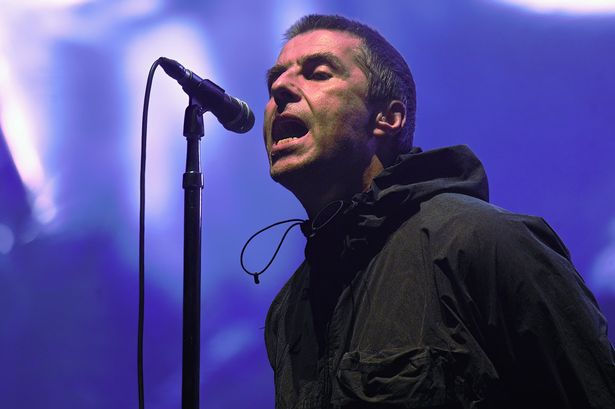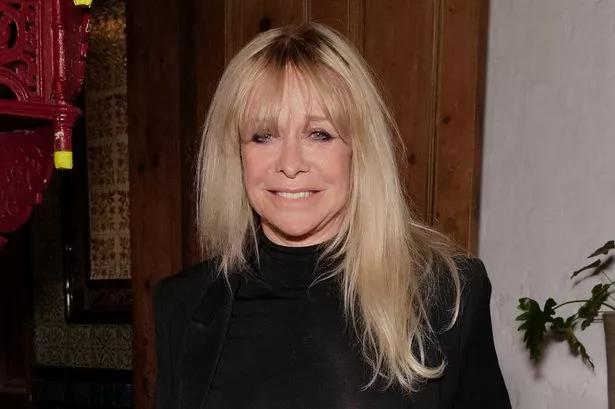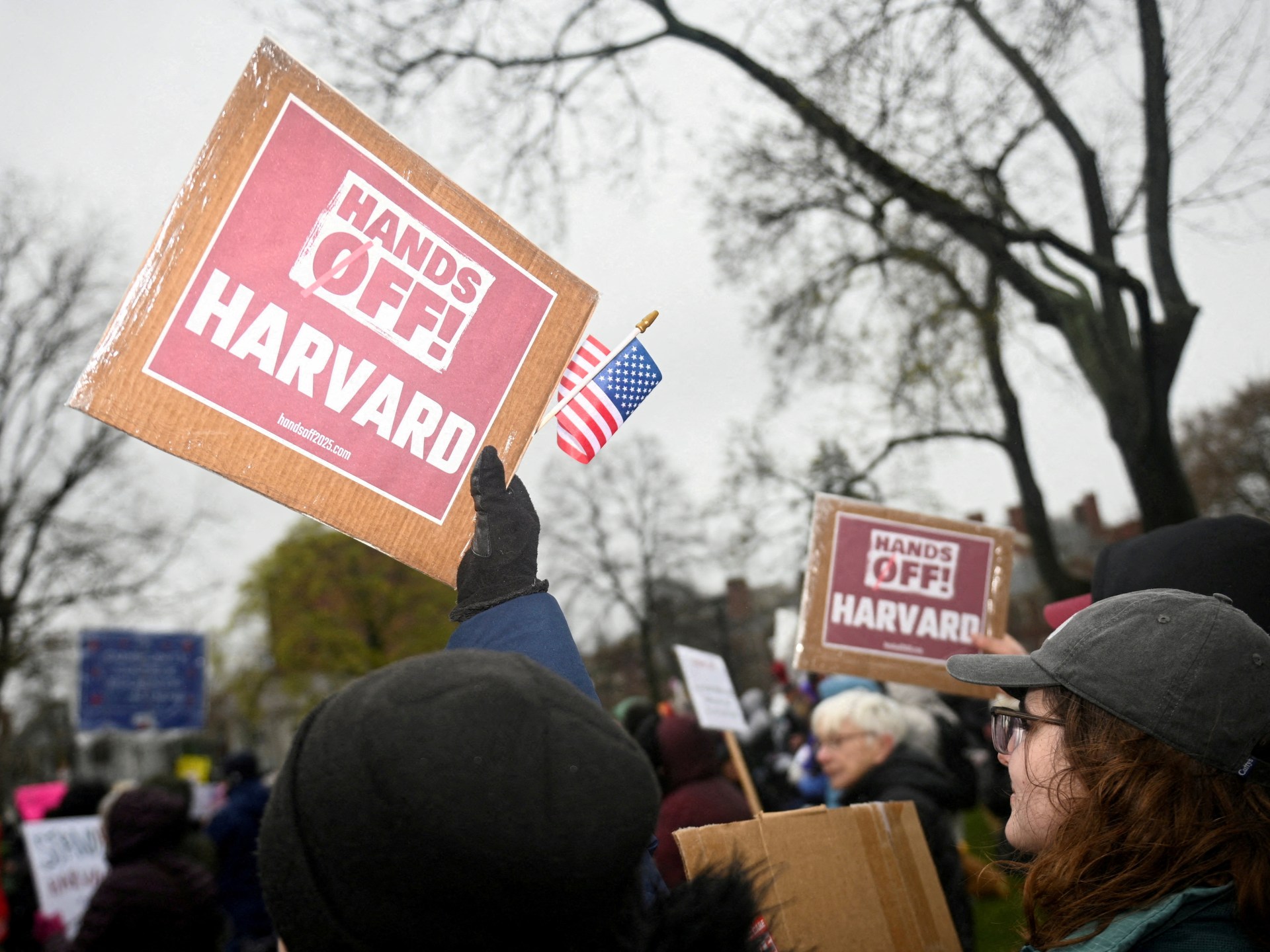Harvard University filed a lawsuit against US President Donald Trump’s administration on Monday to stop the institution’s $2.3 billion in federal funding being frozen. The funding freeze came amid US government efforts to crack down on student protesters and pressure universities into dropping diversity, equity and inclusion programmes.
The US Department of Education announced on March 10 that it had warned 60 higher education institutions of “enforcement actions” if they failed to protect Jewish students on campus as required by Title VI of the Civil Rights Act. Secretary of Education Linda McMahon, who said “US colleges and universities benefit from enormous public investments that are funded by US taxpayers, is also quoted in the letters.” That support is a privilege and it is contingent on scrupulous adherence to federal anti-discrimination laws”.
The Trump administration began halting funding for some of the nation’s top universities shortly after, putting a strain on academic research that universities believe is essential for scientific and medical advancement.
The Trump administration is specifically targeting schools where students took part in pro-Palestine demonstrations last year, alleging that the students’ demonstrations sparked anti-Semitism on the campus.
A day after Harvard filed its lawsuit, leaders and representatives of more than 200 American universities issued a joint statement accusing the Trump administration of political interference. Presidents and CEOs from some of the nation’s top universities, including Princeton, Brown, Harvard, Columbia, Northwestern University, and Pomona College, signed the statement.
What is happening with US campuses in terms of federal funding, then, and can universities survive these cuts?
Why is Harvard suing the US government over funding?
A letter from the US Department of Education, Department of Health and Human Services, and General Services Administration was co-signed by Harvard on April 11 claiming that “Harvard has in recent years failed to live up to the intellectual and civil rights conditions that justify federal investment.”
The letter also demanded that the university stop all forms of discrimination against international students, including “students supporting terrorism or anti-Semitism,” and that the institution end all forms of discrimination against international students. This was a follow-up to a separate letter the government had sent Harvard on April 3, demanding that the university reform any academic departments deemed to be fuelling “antisemitic harassment”. According to the letter, these departments “must be reviewed and necessary adjustments made to address bias, increase viewpoint diversity, and end ideological capture.”
Harvard responded to the demands, claiming that while some demands were intended to combat anti-Semitism, “the majority represent direct governmental regulation of the “intellectual conditions” at Harvard.”
Hours after Harvard rejected the demands, an Education Department task force to tackle anti-Semitism released a statement announcing that  , $2.3bn in federal funding to the university had been frozen.
The US Department of Education, Department of Health and Human Services, Department of Energy, Department of Defense, National Science Foundation, and National Aeronautics and Space Administration leaders have now filed a lawsuit (PDF) in the US District Court in Massachusetts.
We filed a lawsuit to stop the funding freeze because it is unlawful and beyond the government’s control, Garber wrote in a statement on Monday.
The suit says that “the federal Government has launched a broad attack on the critical funding partnerships” which make it possible for Harvard and other American universities to carry out “invaluable research” in the fields of medicine, engineering and artificial intelligence (AI) which is crucial for finding solutions for space travel and for the diagnosis and treatment of diseases such as Parkinson’s, Alzheimer’s and cancer, among other things.
The lawsuit also contends that the funding freeze violates First Amendment rights, which guarantee the right to free speech, making it unlawful.
According to the lawsuit, “This case involves the Government’s efforts to take advantage of the withholding of federal funding as leverage.”
The Tuesday joint statement co-signed by hundreds of American university leaders states: “We will always seek effective and fair financial practices, but we must reject the coercive use of public research funding”.
What kind of losses might Harvard and other universities experience?
$2.2 billion in grants and $ 60 million in contracts are among the frozen federal funds for Harvard. However, more money is at stake. The Trump administration announced in March that Harvard’s $9 billion funding would be reviewed.
Additionally, the administration has threatened to revoke Harvard’s ability to enroll foreign students and its tax exempt status. In the Monday statement, Garber also wrote that the Trump administration has considered taking steps to freeze an additional $1bn in grants.
Columbia University, which became the epicenter of pro-Palestine campus protests in 2024, received $ 400 million in funding from the Trump administration in February. The government cited the institution’s “failure to protect Jewish students from anti-Semitic harassment,” according to the government.
On March 19, Trump froze more than $175m in federal funding to his alma mater, the University of Pennsylvania, citing the allowance of transgender women to play women’s sports.
What other ways are university costs being targeted?
Some universities have reported receiving “stop work” orders that direct universities to halt all work on specific research projects that are funded by the government.
“American universities receive two main funding sources from the federal government. The first is student financial aid, which is provided by thousands of colleges. The University of Tennessee, Knoxville’s Department of Educational Leadership and Policy Studies’ Robert Kelchen, a professor and department head, told Al Jazeera. “The second is research funding, which is heavily concentrated at about 200 universities.
“The American government has relied on universities to conduct research to benefit the country since World War II, and universities have built an infrastructure around that. During this time, the scope of American research funding was unmatched across the globe, Kelchen said.
According to a statement released by Cornell University President Michael I. Kotlikoff and other university leaders on April 8, the US Department of Defense issued more than 75 “stop work” orders.
The orders sent to Cornell relate to “research into new materials for jet engines, propulsion systems, large-scale information networks, robotics, superconductors, and space and satellite communications, as well as cancer research”, the university said.
The amount of federal funding that the projects that were subject to stop work orders were receiving was not specified in the statement. Additionally, it did not specify the reason for the government’s decision to issue these orders.
Northwestern University has also received stop work orders relating to roughly 100 federal grants, the university’s President Michael Schill and Chair of Board of Trustees Peter Barris wrote in a statement on Northwestern University’s website on April 17.
US media reported earlier in April that the Trump administration had frozen Northwestern University and Cornell University’s funding in addition to more than $1 billion. A White House official, according to CNN and the New York Times, had confirmed these funding freezes. “The money was frozen in connection with several ongoing, credible, and concerning Title VI investigations”, the official was quoted by CNN as saying.
However, both Cornell and Northwestern claim to not have been informed of these funding freezes.
How much do universities have on their own?
Many universities have sizeable endowment funds from which they can draw income each year to support research projects, scholarships and other expenses. A university’s endowment is a collection of funds or assets that are given to ensure the institution’s financial viability in the future. Endowments are incredibly large thanks to charitable contributions from alumni, other donors, and businesses.
Harvard’s endowment was worth approximately $53.2bn in the 2024 fiscal year – the largest of any university. According to the website of Harvard, more than one-third of the university’s research is funded by the institution.
For the fiscal year that ended in June 2024, Columbia’s endowment was $ 14.8%. Cornell’s endowment was about $10.7bn in the fiscal year ending in June 2024. In 2024, the endowment for Northwestern University reached an estimated $ 14.3 billion. In June 2024, the endowment for the University of Pennsylvania was $22.3 billion.
Some universities will be able to fall back on these endowments if federal funding freezes remain in place. According to Kelchen, “universities typically spend about 5% of their endowment, which provides funding for the Harvards of the world to make up for lost federal funding.”
However, endowments have limitations. “Endowment funds are heavily concentrated at a few dozen universities, and roughly three-fourths of all endowment funds are restricted for particular purposes”, Kelchen said, explaining that such purposes include student scholarships in very specific fields.
At Harvard, donors choose which programs, departments, and purposes receive a share of the annual endowment. According to the website of Columbia, the endowment’s annual spending is done in accordance with donor wishes.
Universities have also seen a fall in the value of endowments. According to an October 2024 report from the student-run newspaper, the Harvard Crimson, some donors pulled funding from the university over the pro-Palestine protests and the university’s response to concerns about anti-Semitism on campus. In response, Harvard’s donations dropped by $11 million in 2024.
How will universities respond to threats of funding by the government?
Kelchen said that a few research universities may be able to make it through a period of several years without federal funding.
For instance, Northwestern University’s leadership stated in its statement on April 17 that the university would continue to fund research projects that were subject to government stop-work orders. This funding is intended to keep these initiatives going until the funding landscape is understood.
Most universities will not be able to afford to this. Some, therefore, accept government demands.
Columbia, for instance, accepted these demands on March 13 and implemented new policies on campus after receiving its own list of demands from the government. These new policies require protesting students to present their university identification if asked to do so. Additionally, they forbid wearing face masks to cover up a person’s identity. However, wearing a face covering is still acceptable for religious or medical reasons. Columbia also hired 36 security officers who have special powers to arrest students, and the university continues to rely on New York police for additional security assistance.
According to experts, some universities will try to find alternative funding sources.
“Universities have tried for years to diversify their funding sources. The two most likely sources are increasing enrolment]to get more tuition dollars] and trying to generate more donations”, said Kelchen.







